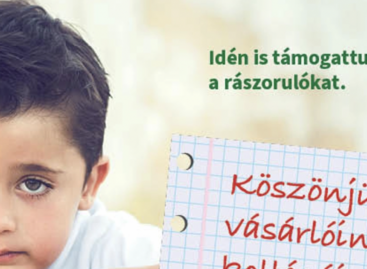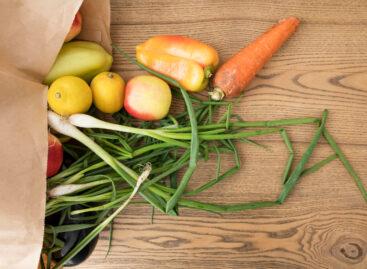Donation of 5 million kilos: solidarity in a sustainable way
Five years ago, the Magyar Élelmiszerbank Egyesület last managed to save and donate as much expired and defective food to the needy as it did in the first half of this year. The 4.9 million kilograms of goods collected by the Association from stores, manufacturers and restaurants are reminiscent of the times before the COVID epidemic and record inflation, even though many factors make it difficult to provide for the needy.

The inventory management practice of commercial chains has improved a lot in recent years, and in most stores end-of-day leftovers and surpluses close to expiration are decreasing. The decline in losses is a welcome trend, it points to the reduction of waste and more sustainable operational processes. At the same time, this represents a serious challenge for the tens of thousands of needy people served by the Magyar Élélmiszerbank Egyesület, who are still suffering from a serious livelihood crisis due to the price increases of recent years.
The surplus that can be saved decreases, but they still help more
While in 2018, the Food Bank was still able to save 129 kilos of baked goods, vegetables, fruits and other food from an average store, in the first half of 2024 this amount had already dropped to a third. Serious efforts and new food rescue procedures were necessary so that, despite this, the amount of donations sent to the needy did not drop. Members of the national food rescue network already visit 733 stores daily for surpluses, which is 2.5 times the number of stores visited five years ago. In addition, the prepared food rescue program of the Association launched last year is also running with good results in catering establishments, company events, workplace canteens and schools.
Based on the aforementioned developments, the Food Bank was able to deliver aid packages to a total of 210,000 needy people in the first half of this year. They donated an average of 30,000 kilograms of food per day – they did it all as a classic NGO, relying primarily on volunteer work and private donations.
Related news
New environmental fines: companies will now have to dig deeper into their pockets
From May 2025, companies will be subject to significant fines…
Read more >12,358 people in need can live well from the food collected by Tesco and its customers in two days
Compared to last year, 100 tons more donations were received…
Read more >Postponement came, preparation remained: this is how Hungarian companies are preparing for ESG obligations in light of the Omnibus
The postponement of the fulfillment of sustainability obligations creates an…
Read more >Related news
Visit Hungary: municipalities can still apply for one of the country’s most popular environmental beautification competitions
Until May 30, settlements can still apply for one of…
Read more >“Bite-sized Stories: Tales Without a Leftover” – Nébih announces a story writing competition
The National Food Chain Safety Office (Nébih) has announced its…
Read more >Election of new pope boosts Rome’s tourism
Souvenirs depicting Pope Leo XIV have flooded the Vatican area,…
Read more >






